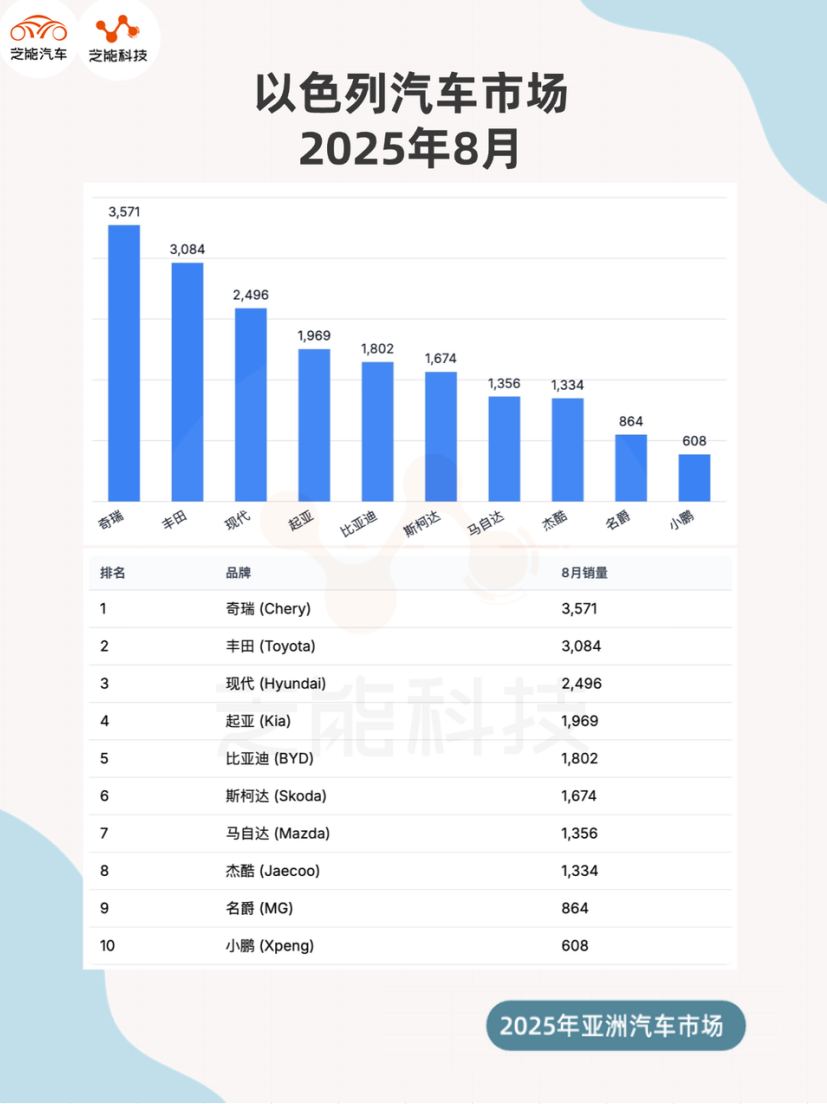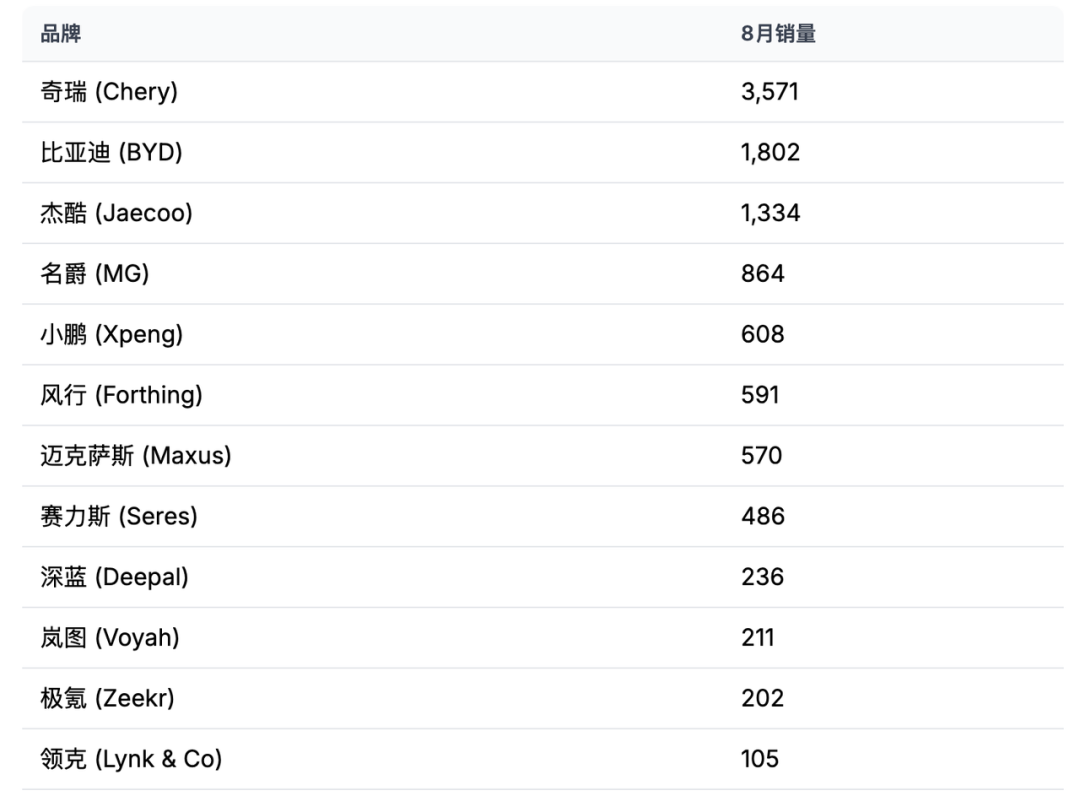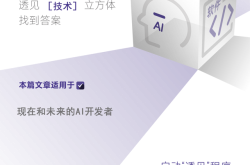Asian Auto Market | Israel in August 2025: Chinese Brands Take the Lead, with Chery Securing the Top Spot Once Again
![]() 09/08 2025
09/08 2025
![]() 505
505
Produced by Zhineng Technology
In August 2025, the Israeli automotive market maintained its upward trajectory, with monthly sales hitting 28,342 units, marking a 24.2% year-on-year surge. The cumulative sales for the first eight months stood at 212,738 units, up 4.8% from the same period last year.
Chinese automotive brands shone brightly, with Chery retaining its monthly sales crown and commanding a 12.6% market share.
01
Market Overview and Brand Performance
The sales growth in August can be partly attributed to the pent-up demand resulting from last year's geopolitical tensions. Chinese brands made significant strides in Israel, swiftly rising to challenge the long-standing dominance of Japanese, Korean, European, and American counterparts.

◎ Chery led the pack with 3,571 units sold, a staggering 177.9% year-on-year increase, and a 12.6% market share. Its cumulative sales reached 17,429 units, placing it among the top performers for the year.
◎ Toyota took the second spot with 3,084 units sold, a 3.1% year-on-year decline, and cumulative sales of 25,899 units.
◎ Hyundai secured the third position with 2,496 units sold, maintaining the same level as the previous year, and cumulative sales of 25,445 units.
◎ Kia sold 1,969 units, an 85.9% year-on-year increase, but its cumulative sales dropped by 10% to 18,201 units.
◎ BYD ranked fifth with 1,802 units sold, a 76.8% year-on-year increase, and cumulative sales of 9,170 units.
Among traditional brands:
◎ Skoda and Mazda witnessed declines of 30.7% and 20.7%, respectively.
◎ Tesla's sales plummeted to only 201 units, an 85% year-on-year decrease, causing it to slip to the 31st position.
In contrast, Chinese brands demonstrated robust performance:
◎ Jetour sold 1,334 units, a year-on-year surge of over 600%, with cumulative sales reaching 10,850 units.
◎ MG sold 864 units, a remarkable 1,152% year-on-year increase.
◎ SAIC Maxus sold 570 units, a staggering 3,462% year-on-year increase.
The penetration rate of new energy vehicles continued to climb, with brands like BYD and XPeng gradually establishing a foothold, while luxury brands such as BMW and Mercedes saw their market shares shrink.
Summary: Chinese brands witnessed rapid growth, with Chery leading the charge and Jetour and MG performing exceptionally well. Traditional brands faced mounting pressure, and new energy vehicles emerged as a new growth driver in the market.
02
Competitiveness of Chinese Brands
The ascent of Chinese brands was the standout feature of the market in August.
◎ Chery, primarily focused on fuel-powered vehicles, sold 3,571 units, capturing a 12.6% market share. This reflects the high compatibility of its product cost-effectiveness and channel layout with local demand.
◎ BYD expanded through electric vehicles, selling 1,802 units in August, a 76.8% year-on-year increase. Models like the Han, Tang, and Seal gradually gained market acceptance.
◎ Jetour sold 1,334 units, a year-on-year increase of over 600%, with cumulative sales surpassing 10,000 units, appealing to young consumers.

◎ MG sold 864 units, a 1,152% year-on-year increase, performing strongly in the compact SUV and entry-level sedan segments.
◎ XPeng sold 608 units, a 48.3% year-on-year increase, with cumulative sales exceeding 5,000 units, showcasing a solid new energy vehicle strategy.
◎ Geely sold 342 units, a slight year-on-year decrease, but boasts a comprehensive product lineup.
Chinese brands, leveraging product diversity and market adaptability, achieved comprehensive breakthroughs in the Israeli market, covering multiple segments of fuel-powered and new energy vehicles.
Summary
In August 2025, the Israeli auto market exhibited robust growth momentum, with Chinese brands emerging as the biggest highlight. The leadership of Chery and the rapid growth of brands like BYD and Jetour were truly impressive to behold.







